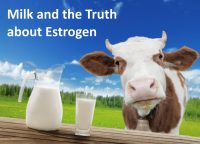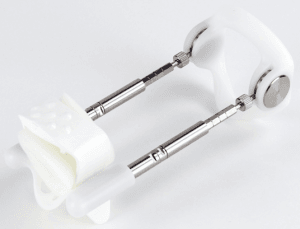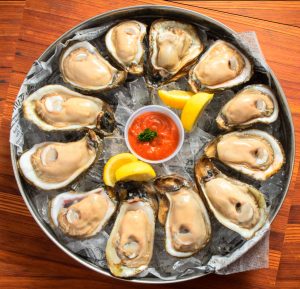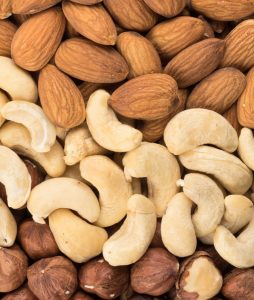Green Tea for ED
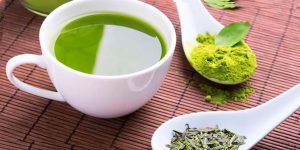 Green tea itself is obtained from the tea plant species Camellia sinensis, or, commonly, the Chinese tea. Its bud and leaves are used to make green tea.
Green tea itself is obtained from the tea plant species Camellia sinensis, or, commonly, the Chinese tea. Its bud and leaves are used to make green tea.
Originally produced in China, this species has grown and spread to several East Asian countries.
Green tea contains several components, which have different benefits; not all are exclusively used for treating ED. They include:
- Caffeine
- Catechins
- Vitamins (C, B2, folic acid, β-carotene, and E)
- L-theanine
- Fluorine
- Saponins
- Chlorophyll
- GABA
Note, the most useful elements helpful in erectile function are catechins: EGCG and L-theanine.
The catechins in green tea are 50 times stronger than those in cocoa, and 100 times stronger than those in wine. They’re basically the strongest naturally occurring antioxidants.
They include Flavonoids, Epicatechin gallate, Epigallocatechin gallate (EGCG), and Epicatechins
EGCG
EGCG is an antioxidant; it protects the body from free-radical cell damage. Free radicals are highly particles that could damage cells. EGCG is also known to reduce inflammation and stress.
Studies have shown that ECCG intake increases erectile function. ED can be due to oxidative stress in the body, and EGCG is among the most potent antioxidants that can solve the problem.1
Oxidative stress results from excessive reactive oxygen production, than the body can deal with.
L-Theanine
It is an amino acid found almost exclusively in pekoe, oolong, and green tea. It’s most effective in sress-related ED.
Its intake increases the production of alpha brain waves that have a calming effect. It increases alertness and focus alike, and it betters your moods. This has been proven through several tests on both humans and rats.2
Matcha vs. Normal Green Tea
Popular in the Japanese tea ceremonies, matcha green tea is ground into fine powder, which ensures its antioxidants and nutrients are preserved, unlike regular green tea that features just leaf fragments. Consequently, once mixed with hot water, matcha is instantly ready for use; regular green tea would need two minutes (in hot water) before use.
Plus, it doesn’t have to be brewed or steeped at all, unlike regular green tea.
Another reason matcha is more potent is in its preparation process. The leaves are cultivated differently, compared to the regular green tea.
Matcha tea is grown under special cloths, protecting it from the sun. It’s then given a special post-harvest treatment to ensure optimum potency. Its unique taste is due to a lack of exposure to the sun.
Once harvested, the leaves are steam-treated briefly, preventing fermentation. Then, these are dried and allowed to age in cold medicine, which enhances the taste further.
Matcha boasts higher caffeine content than regular green tea. A cup of 237 ml, prepared from four teaspoons of powder, has 280 mg average caffeine content. A similar cup of coffee would have similar caffeine content.
Compare that to a standard green teacup, of the same volume, and you have only about 35 mgaverage caffeine content.
Unlike coffee, matcha features the L-Theanine ingredient, an amino acid that increases dopamine and energy levels, helping boost focus. Dopamine stimulates pleasurable feelings, increases attraction, and makes sex more enjoyable.
Additionally, it counters all the side effects of caffeine.
Due to the way it’s cultivated and processed, matcha is more potent than regular green tea, particularly when tackling ED.
It causes vasodilation, or helps relax the walls of blood vessels. This lowers blood pressure, increasing blood and oxygen flow to all major organs, including the penis. Vasodilation makes the penis attain a fuller, harder, and longer-lasting erection.
Matcha tea is best taken half an hour before sex.
Caffeine
Consumption of 2 to 3 cups of coffee daily has shown reduced erectile dysfunction in several tests. Men had approximately 42% fewer chances of reporting ED if they took two to three cups of coffee, daily.
This trend remained unchanged in obese, overweight, and hypertensive men. The results were different in men suffering from diabetes, however.
It is believed caffeine triggers muscular and arterial relaxation in the penis area. This increases blood flow to the penis.
Caffeine is present in tea and coffee, but the concentration is higher in coffee as it’s a more potent drink.
Caution
One of the green-tea contents, as listed above, is GABA, also known as γ-aminobutyric acid. It’s known to have several effects, including relaxation. Green tea high on GABA content, known as GABA tea, acts as a sedative, without the risk of addiction, thankfully.
The GABA content is about 400 mg per 100 g of regular green tea. The content is approximately 50 times more in GABA tea, though. Note, consuming GABA tea might make you sleep easily. You could have issues obtaining an erection, too.
Who should avoid Green Tea
It might not be safe treating ED with green tea in patients with the following conditions:
- Anemia
- Stomach problems
- Heart conditions
- Iron deficiencies
- Glaucoma
- Diabetes
- Diarrhea
- Anxiety disorder
- Bleeding disorder
- Osteoporosis
- Liver disease
- Neves, D., et al. “Does Regular Consumption of Green Tea Influence Expression of Vascular Endothelial Growth Factor and Its Receptor in Aged Rat Erectile Tissue? Possible Implications for Vasculogenic Erectile Dysfunction Progression.” Age, vol. 30, no. 4, Dec. 2008, pp. 217–28. PubMed Central, doi:10.1007/s11357-008-9051-6.[↩]
- Chen, Dong, et al. “Epigallocatechin-3-Gallate Ameliorates Erectile Function in Aged Rats via Regulation of PRMT1/DDAH/ADMA/NOS Metabolism Pathway.” Asian Journal of Andrology, vol. 19, no. 3, 2017, pp. 291–97. PubMed Central, doi:10.4103/1008-682X.178486.[↩]


